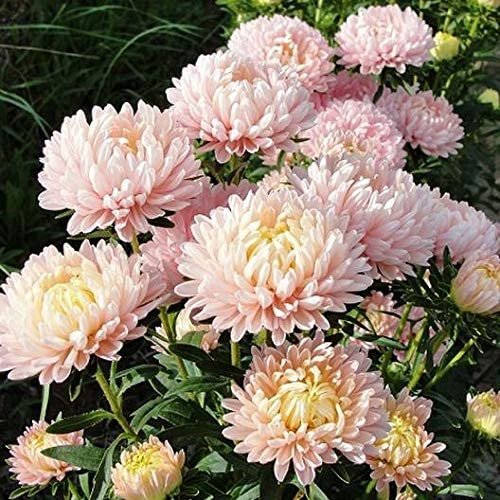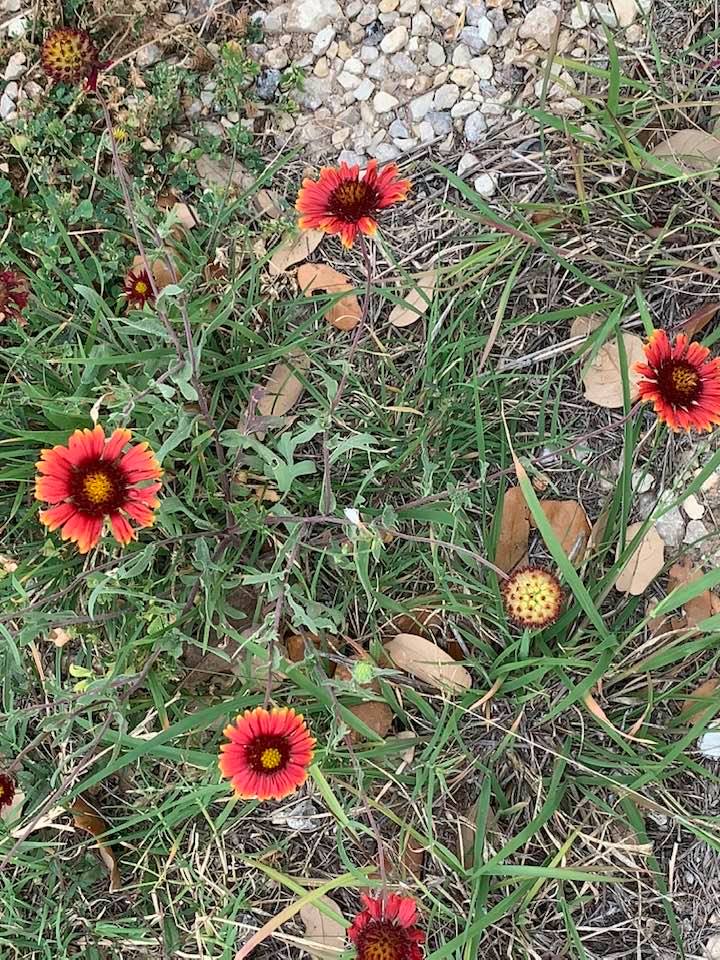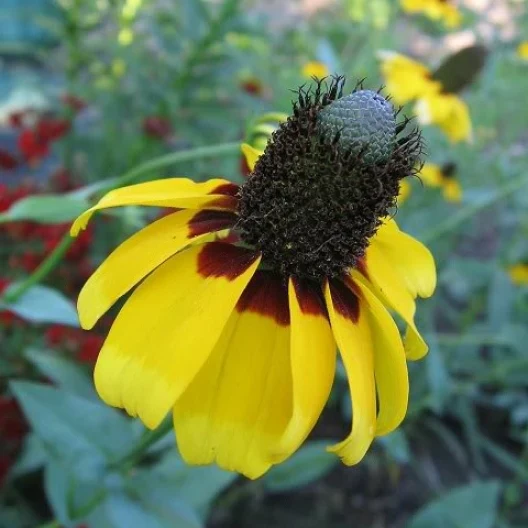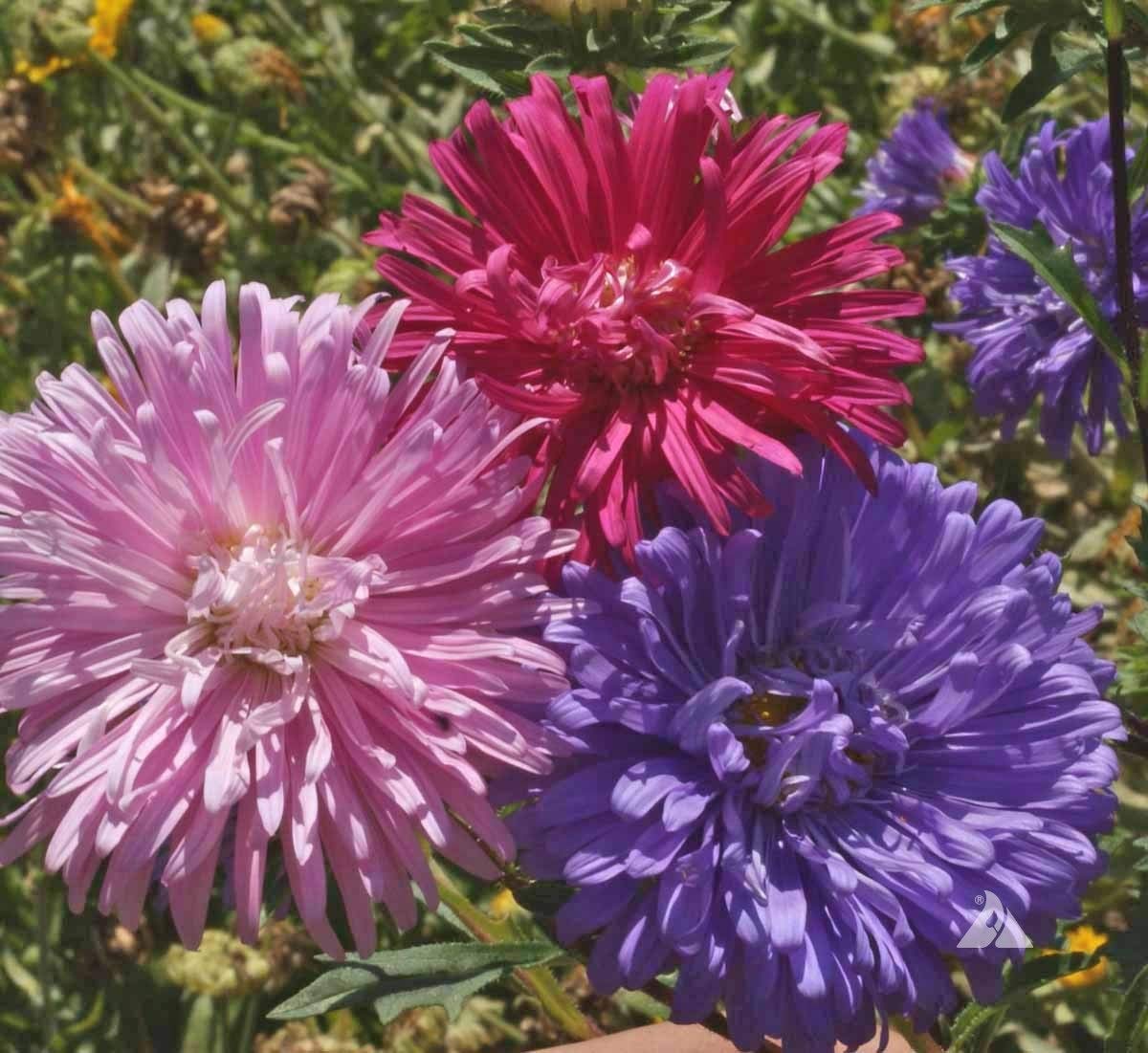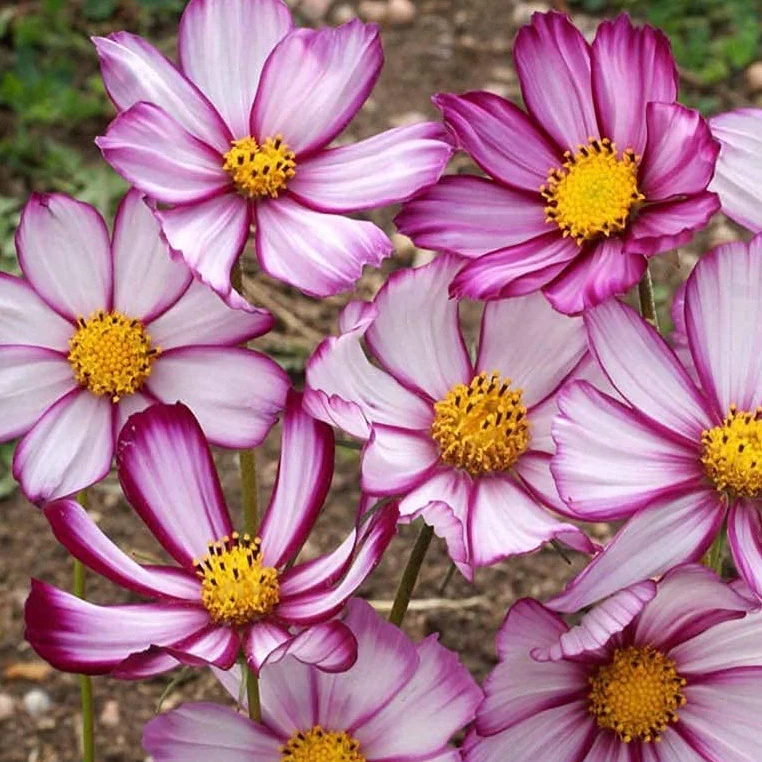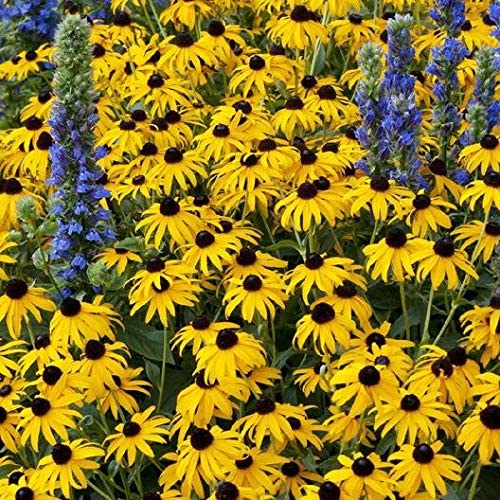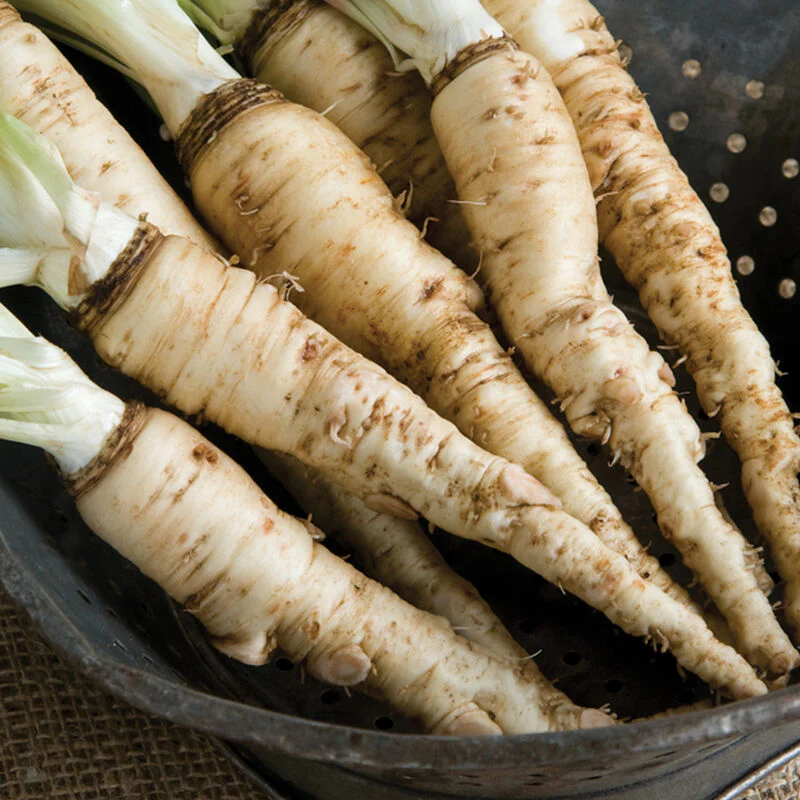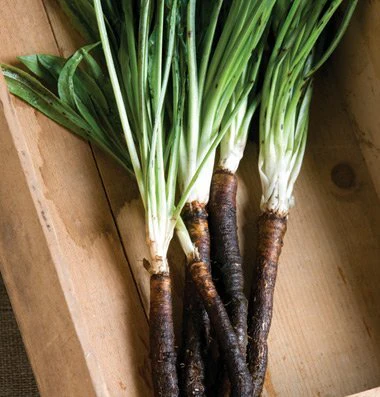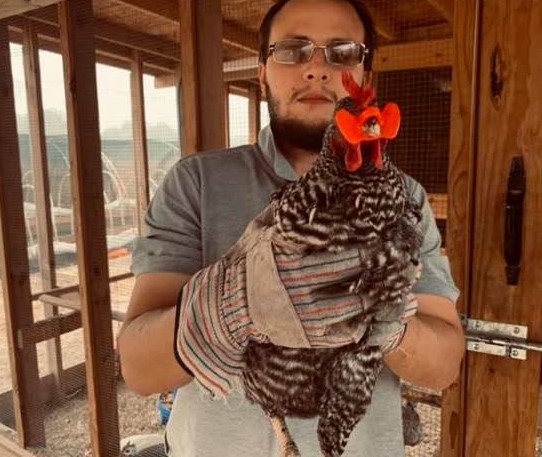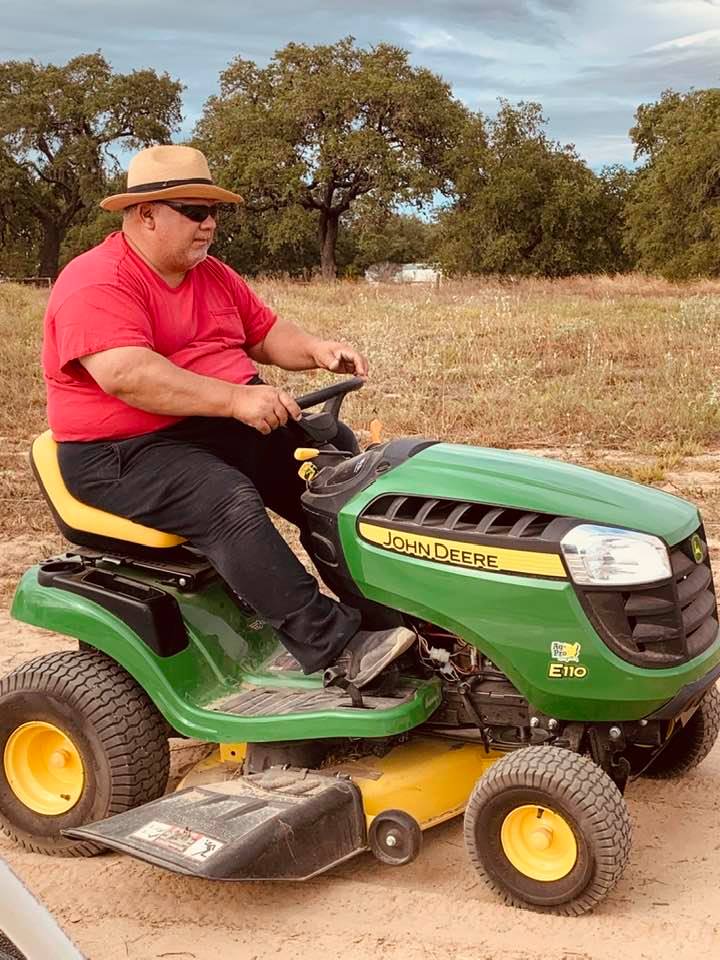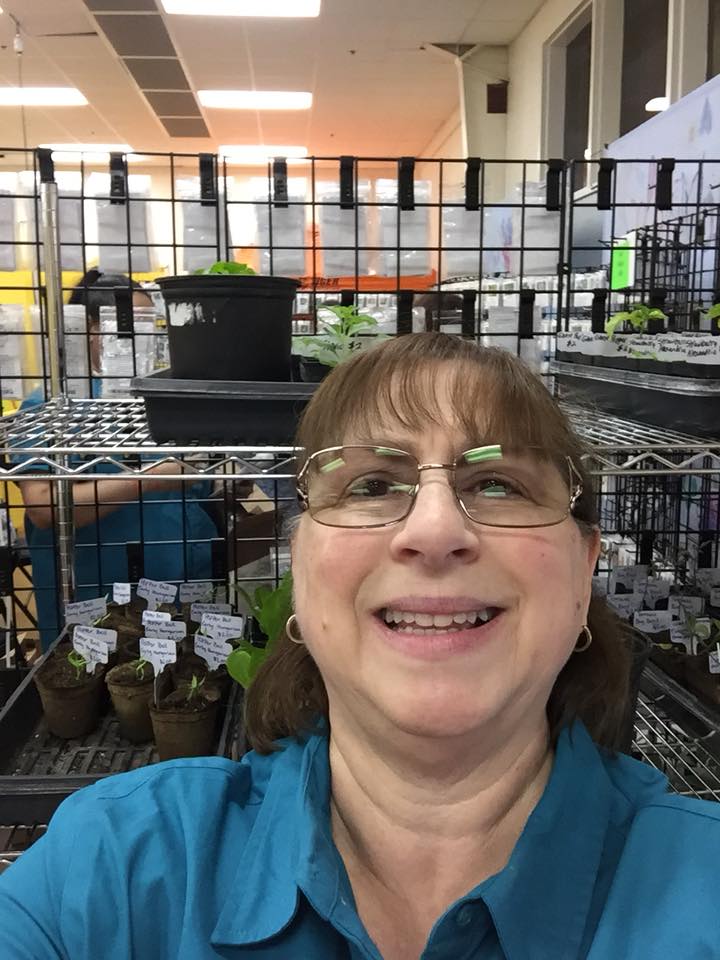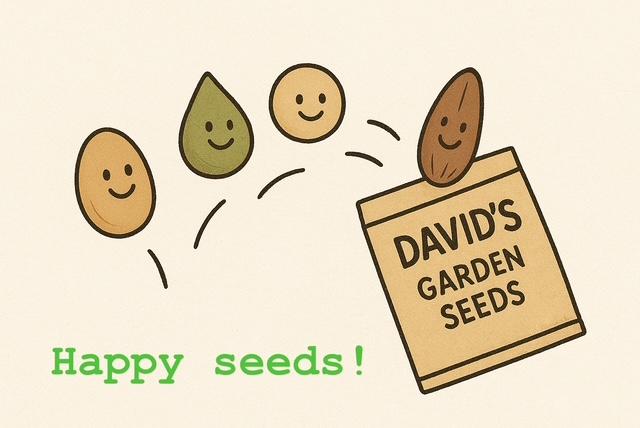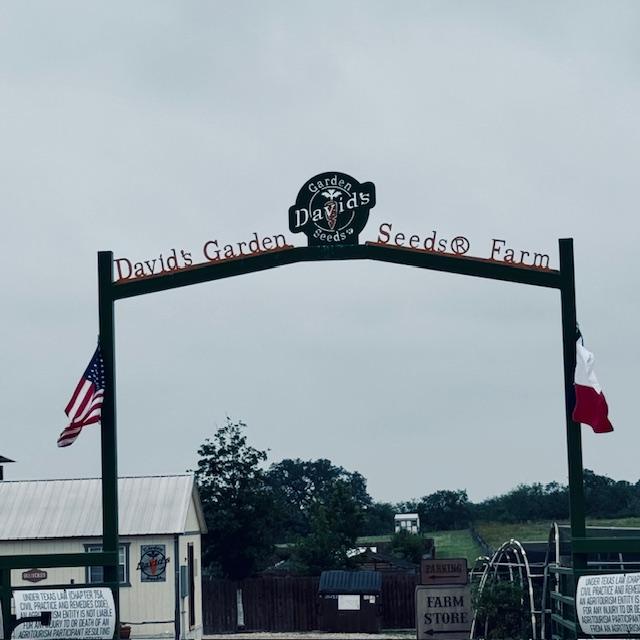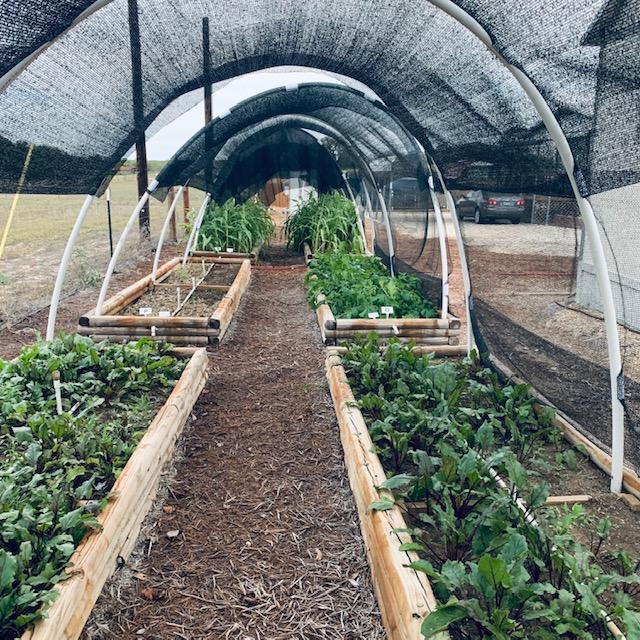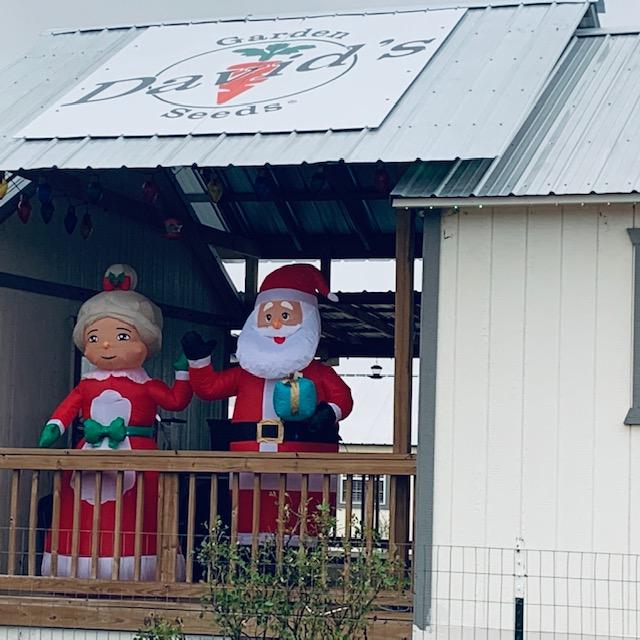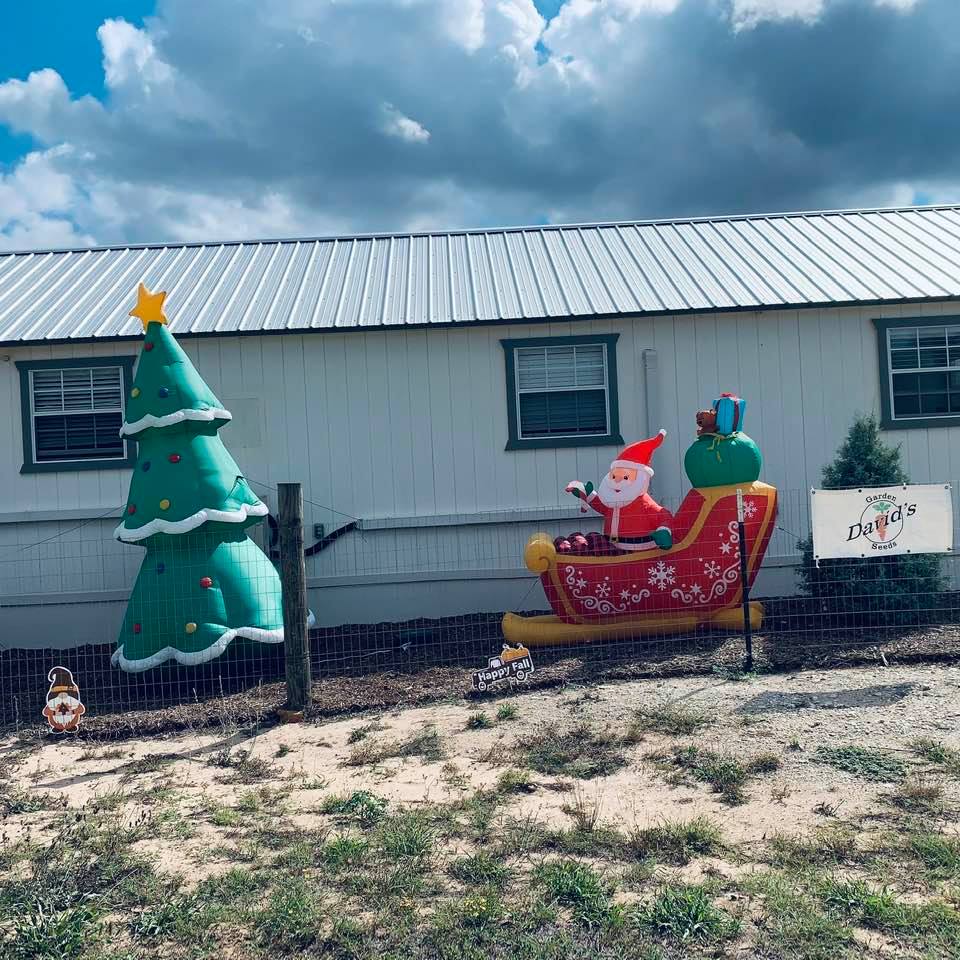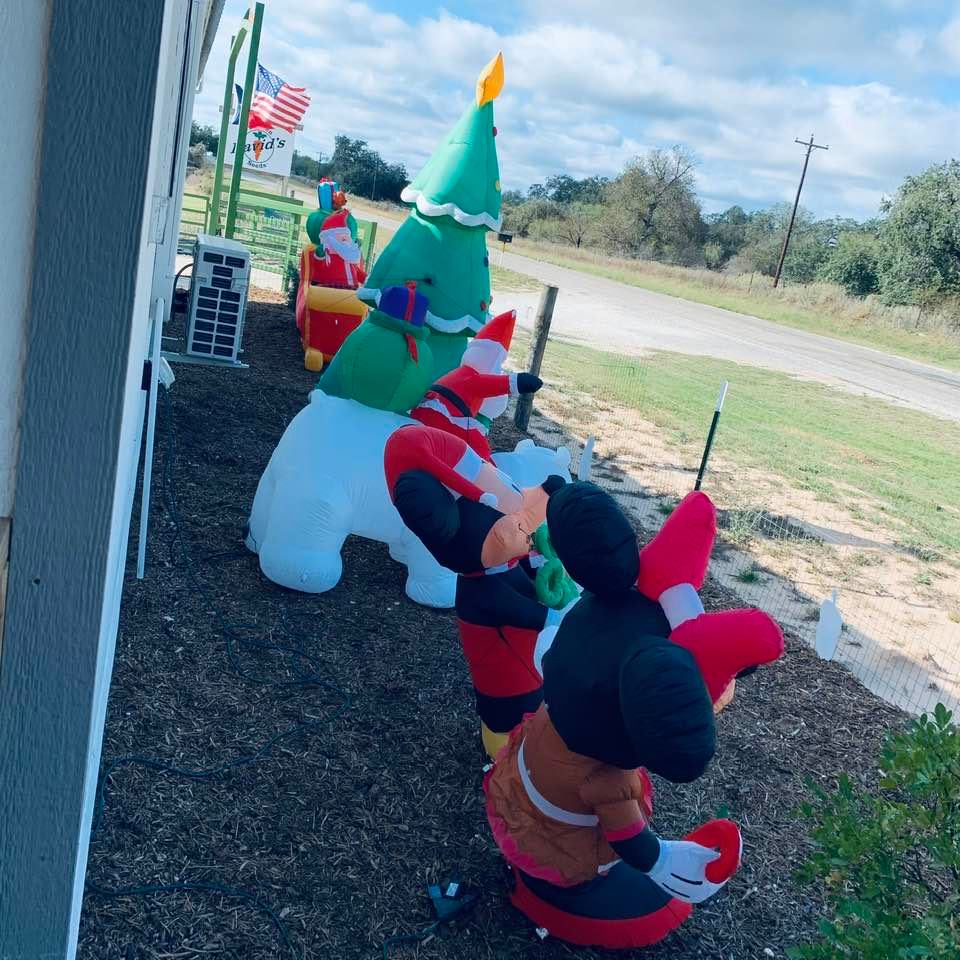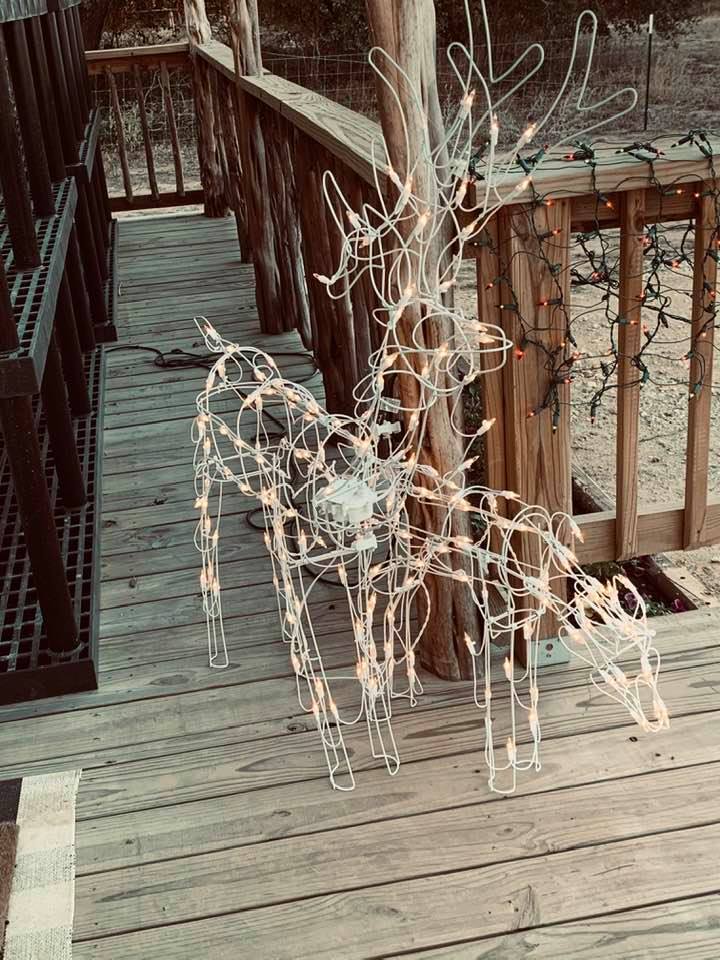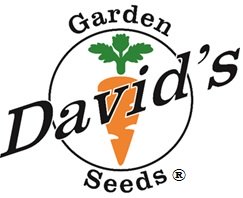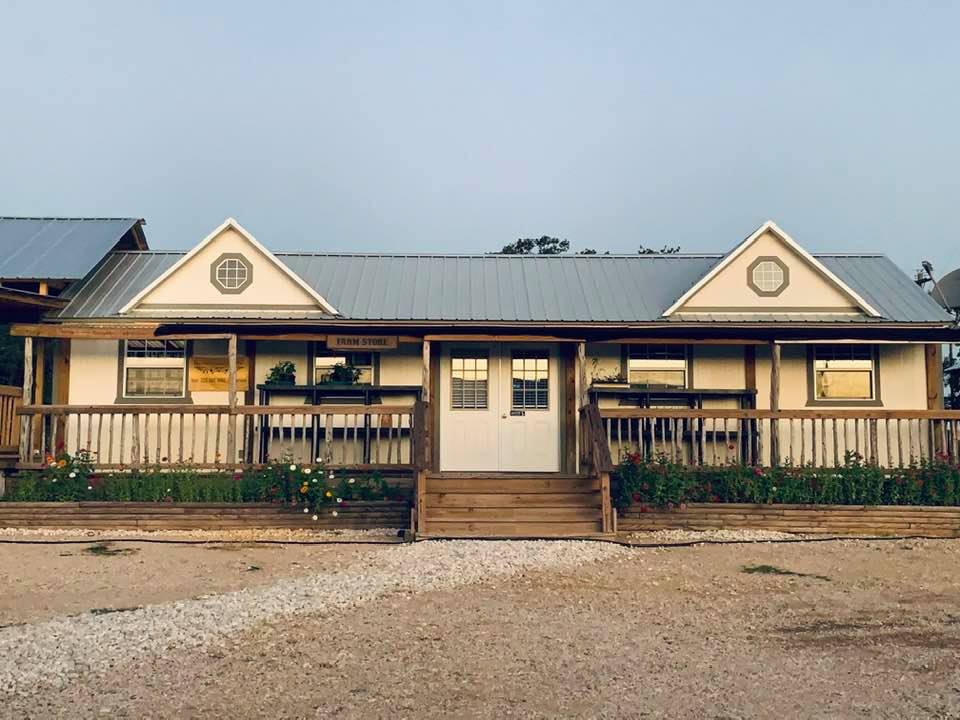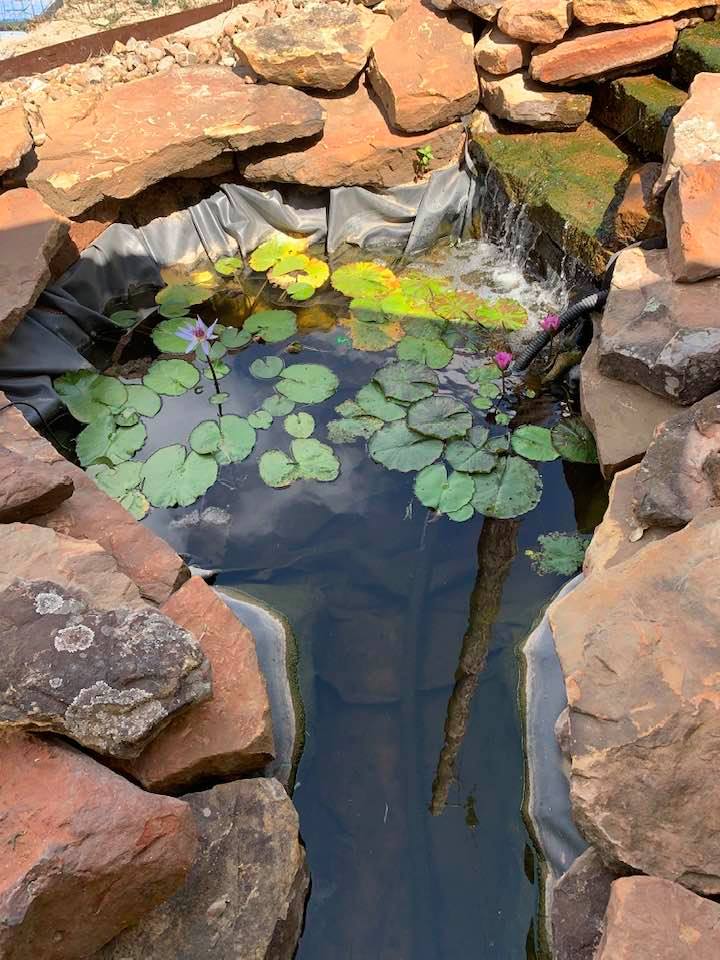Aster Family
The Aster Family of plants consists of asters, daisies, sunflowers, marigolds, and several familiar herbs along with more than over 32,000 species of plants.
Aster Family - 7/15-7/21/2024
Monday, July 15, 2024
Good Monday morning. What a day it has been and it is only 10am. One of the puppies pooed in their kennel and another peed in the living room. It is so hot and humid outside. The pond pump stopped working again. So much more. I guess that is what is called real life. Matthew is fixing the plugged up pump as I write. Because of the storm, a lot more leaves from the big tree next door blew into the pump. This was just a bad place to put the pond because of that giant oak tree next door.
It is currently 82 degrees and will get up to 97 degrees today. The Republic National Convention will start today and I love the conventions. It should be a fun time.
We had two customers in the store today. One spent 75 cents and the other spent $2.95. The puppies are itching less and starting to gain weight. They are getting harder to handle two at a time!
I watched some of the convention. I saw the part where Trump was put over the top by the delegates from Florida with Eric Trump giving the delegates to his father. It was so nice! Also Senator JD Vance from Ohio is the new VP. I know next to nothing about him but he has to be better than the traitor was!
We had just one teen helper here this morning and he left before noon. It was pay day and I got the checks written. I got all of the orders out from the website except for two that need peaches and cream corn.
This evening, we had a tragedy. We lost Melania puppy and I am just devastated about it. She was the sweetest and it hurts so much.
Aster Family
Hello fellow gardeners! Today we're going to dive into the wonderful world of the aster family of plants, also known as Asteraceae. This diverse family contains over 32,000 species of flowering plants found all over the world. As a beginner gardener, you'll definitely want to get to know this amazing plant family.
The aster family includes many common garden favorites like
sunflowers, daisies, marigolds, zinnias, chrysanthemums, and of course,
asters. But did you know it also includes some tasty edible plants like
lettuce, artichokes, and chicory? There are even some powerful medicinal
plants in the aster family like echinacea, chamomile, and milk thistle. (We do carry the seeds for these as well.)
One thing that unites all the varied plants in the aster or Asteraceae family is their flower structure. The "flowers" are actually flower heads made up of many tiny individual flowers clustered together. There are two types - ray florets around the edges that look like petals, and disc florets in the center. Once you recognize this unique flower structure, you'll start spotting aster family members everywhere!
In this guide, we'll go over everything you need to know to start growing beautiful and bountiful aster family plants in your own garden. I'll share tips on where to get seeds, how to plant and care for these plants, and which ones you might want to try growing for ornamental, edible, and medicinal uses. Let's get started on our aster adventure!
Tuesday, July 16, 2024
Today, David and I went to San Saba to pick up some pecan treats since they would not ship chocolate in the summer. Of course, we won't ship it in the summer either, but we will have plenty in the store. We were gone the entire day and did not get back until 6pm.
The orders poured in and I am way behind!
Aster Family
So you're ready to add some aster family plants to your garden - great
choice! These plants are not only beautiful and interesting, but many
are also easy to grow, even for beginners. Let's talk about how to get
your hands on some seeds or starter plants. It's simple! Go to David's Garden Seeds website and shop.
One great thing about aster family plants is that many of them grow readily from seed. You can often find packets of common varieties like cosmos, zinnias, sunflowers, and lettuce at your local garden center or online. Make sure to check the Latin name and verify it's in the Asteraceae family. Seed catalogs are also a great source for more unusual varieties.
When buying aster seeds, take note of whether they are annuals that need to be replanted each year, biennials that take two years to flower, or perennials that come back every year. Most common garden aster family plants are annuals or short-lived perennials. Perennials like purple coneflower and blanket flower are great choices for dependable color year after year.
If you're a beginner, you may want to start with buying some young aster plants from a nursery rather than starting from seed. Good starter plants include marigolds, gazania, and gerbera daisies. You can transplant them right into your garden bed and enjoy flowers the same year.
Don't be afraid to try collecting seeds from wild aster plants too, like dandelions or thistle. Just make sure you have permission if it's not your property, and avoid any areas that may have been sprayed with pesticides or herbicides. You can sow the seeds directly in your garden or start them in trays to transplant later.
Wednesday, July 17, 2024
I pulled orders all day long. The Prime Days Sale we had that corresponded with Amazon did very well. There were many five, six, seven and even ten page orders. It took me all day long and I still had six large orders left to pull.
David went into San Antonio along with Matt and they brought back two vehicles filled with plants. Last week, we brought a vehicle full of them. There are flowers, tomato, pepper and more plants.
I went in around 6pm and cooked our meat chickens. Honestly, there was not much meat on them at all. When we bought them from the farmer back in May, I asked the farmer what variety they were and he would not tell me. Next time, I will order baby meat chicks and raise them myself so I know what I am getting and how long before they need to go to freezer camp.
Aster Family
Now that you've got your aster family seeds or starter plants, it's time to get growing! Most asters are sun-loving plants that thrive in well-draining soil. Let's go over some tips for planting and caring for your new garden additions.
If you're starting with seeds, you have the choice of direct sowing outdoors or starting seeds indoors to transplant later. For most aster varieties, it's easiest to sow them directly in the garden after your last spring frost. Choose a spot with full sun and loosen up the soil. Sprinkle the seeds and lightly cover them with about 1/4 inch of soil. Water gently and keep the soil moist until they sprout.
Some aster seeds like gaillardia (blanketflower) and coneflower benefit from a period of cold stratification before planting. This mimics the winter chill they would experience in nature. You can achieve this by putting the seed packet in the refrigerator for a few weeks before planting. This will lead to better germination rates.
If you're transplanting nursery seedlings or your own indoor-grown aster plants, wait until after the danger of frost has passed. Dig a hole about the size of the root ball, place the plant inside, and backfill with soil. Water thoroughly and add some compost or slow-release fertilizer to give your transplants a good start.
Aster family plants vary in height quite a bit, from low-growing dandelions to towering sunflowers. Make sure to check the mature size of the variety you're planting and give them enough space. Overcrowded plants are more prone to disease issues. Tall varieties like cosmos and Jerusalem artichoke may need staking to avoid falling over.
Once established, most asters are fairly drought tolerant, but will bloom best with regular watering. Aim for about an inch of water per week, and more during hot, dry spells. A layer of organic mulch like straw or shredded leaves will help the soil retain moisture.
Annual asters will bloom prolifically for one season and then die back at the end of the growing season. Perennial asters will die back to the ground in winter but send up fresh shoots in spring. Prune any dead or diseased foliage as needed. In early spring, you can divide mature perennial aster clumps to create new plants.
Thursday, July 18, 2024
This morning started out in the flowerbeds in front of the Farm Store. David said we all would be out there at 7am, working to make the place look better. Funny but in the hour and a half that I worked out there pulling up the zinnias and snapdragons, I never saw David. I had to get a large shovel to pull them all up because the roots were down deep. The heat made everything brown and ugly so up it all came. Then I was surprised to find a layer of grass and other weeds in there.
By 8:30am, my back was hurting and it was hot. I quit and went in to get changed for work. I closed orders all day long until 2:30pm when David and I left for a doctor's appointment in San Antonio. The visit did not go the way David thought it would. After that, it was 5pm and we were hungry so for the first time ever, we stopped at the Chuy's restaurant on 151 and had a quick dinner. The chicken cheese enchiladas I had were so good.
By the time we got home, Matt was still here. I fed the fish, put away the goats and chickens, fed the bunnies, and then took Trump out after feeding him. I brought him in and bathed him as he was smelling bad again. I did the dishes and now am watching the last night of the convention. I am really enjoying the speeches.
Back to the garden in the morning to plant new flowers. I hope my back does okay tonight.
Aster Family
With their easygoing nature and prolific flowers, asters don't require a lot of fussy care. But there are some things you can do to keep your aster patch looking its best. Let's discuss some tips for ongoing care and maintenance of your aster family plants.
As mentioned before, asters are generally sun-loving plants that bloom best in six or more hours of direct light per day. If you notice reduced flowering or floppy growth, your plants may be getting too much shade. Try transplanting them to a sunnier spot or pruning any nearby plants that are blocking the light.
Asters are also fairly heavy feeders, meaning they use up soil nutrients quickly. To keep the flower show going, fertilize your asters monthly with a balanced, water-soluble fertilizer. You can also add a slow-release granular fertilizer at the beginning of the growing season. Avoid over-fertilizing with nitrogen, which can lead to lots of leaves but fewer blooms.
Deadheading, or removing spent flowers, is a great way to tidy up your aster plants and encourage more blooms. As soon as a flower starts to fade, snip it off at the base with clean, sharp pruners. This prevents the plant from putting energy into producing seeds and redirects it into making more flowers.
Asters are generally pest-resistant, but you may occasionally spot aphids, whiteflies, or spider mites on the foliage. A strong jet of water from the hose can knock off most pests. For bigger infestations, try an insecticidal soap or neem oil spray. Avoid broad-spectrum pesticides that can harm beneficial insects too.
Powdery mildew is a common fungal disease that can affect aster family plants, especially in humid conditions. You'll see a white, powdery coating on the leaves. Provide good air circulation around your plants and water at the base rather than from overhead to reduce the risk. Remove any infected leaves and dispose of them (don't compost).
Aster yellows is another disease to watch out for. It's caused by a bacteria-like organism called a phytoplasma and is spread by leafhopper insects. Affected plants will be stunted with deformed, yellowish flowers. There's no cure, so remove any infected plants to prevent the disease from spreading. Control leafhopper populations by using reflective mulches or row covers.
Remember, the best defense against pests and diseases is to grow healthy, robust plants. Give your asters the sun, space, and nutrients they need and they'll reward you with abundant blooms and few problems. Regular monitoring will also help you catch any issues early before they get out of hand.
Friday, July 19, 2024
Aster Family
One of the joys of growing aster family plants is being able to harvest their beautiful blooms, nutritious seeds, and flavorful leaves. Many asters make excellent cut flowers, and some are edible too! Here's what you need to know to make the most of your aster harvest.
For cut flowers, harvest your aster blooms in the cool of the morning, after the dew has dried but before the heat of the day sets in. Choose flowers that are just starting to open - they'll continue to bloom in the vase. Cut the stems at an angle and immediately place them in fresh, clean water. Change the water daily and recut the stems to extend the vase life.
Some of the best aster varieties for cut flowers include zinnias, cosmos, strawflowers, and of course, the classic garden aster. Experiment with different colors and textures to create stunning bouquets. Aster flowers also dry beautifully - try hanging bunches upside down in a dark, dry place for some lovely everlasting arrangements.
Many aster family plants produce edible seeds that are packed with protein, fiber, and healthy fats. Sunflower and safflower seeds are common snacks, but did you know you can also eat the seeds of cosmos, coneflower, and bachelor's button? Harvest the seed heads once they've turned brown and dry. Rub them between your hands to release the seeds, then winnow away the chaff.
To roast aster seeds, toss them with a little oil and salt and spread them on a baking sheet. Roast at 300°F for 30-40 minutes, stirring occasionally, until they're crisp and golden brown. Store roasted seeds in an airtight container at room temperature for up to a few months. Sprinkle them on salads, yogurt, oatmeal, or just eat them by the handful!
The young leaves of some
aster plants are edible too. Dandelion and chicory greens are common in
salad mixes. Steamed or sautéed sunflower and cardoon leaves make a
delicious green side dish. Always make sure to positively identify any
wild plants before eating them, and avoid harvesting from areas that may
be contaminated with pesticides or other chemicals.
When harvesting
aster leaves, choose the youngest, most tender ones for the best flavor
and texture. Snip them off with scissors or pinch them with your
fingers. Rinse the leaves well and use them fresh, or store in the
fridge in a plastic bag with a damp paper towel for a few days.
You can also dry aster leaves for tea or to use as an herb seasoning.
Remember, not all aster family plants are edible, and some may cause allergic reactions in certain people. Always do your research and err on the side of caution when trying any new plant. Start with small amounts and see how your body reacts before consuming larger quantities.
We carry seeds for all of the plants mentioned in this section.
Saturday, July 20, 2024
Today was quite a day! I got all of the chores done early. Matt came over and fixed the pond pump again and watered. I started pulling orders and around 11am, the first customer showed up. After that, there were more and they all bought plants, lots of them. If you want any kind of tomato or pepper plants for fall, come by early because they are going quickly. We also have herb and flower plants. They are also going pretty fast.
It got up to 100° and I was sweating like a pig helping customers with plant purchases. I looked like I had been run over by a mac truck by the time I got in the house for the day. I got to eat lunch around 2:30pm.
We made burgers tonight. Svengoolie played a movie we have seen a lot so we watched the fifth James Bond movie, You Only Live Twice. It was a lot of fun.
Aster Family
Aster family plants are some of the most colorful and eye-catching flowers in the garden. From the cheerful faces of sunflowers to the delicate beauty of cosmos, there's an aster for every taste and style. Let's explore some of the best ornamental asters to add to your flower beds and borders.
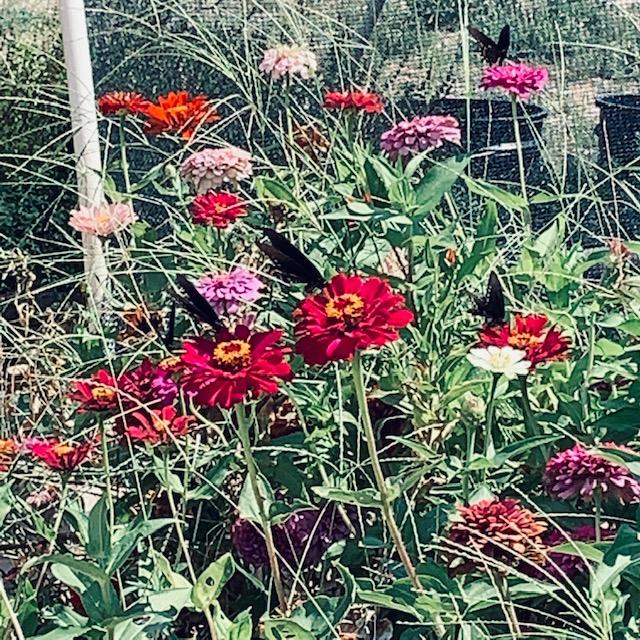 Zinnias in front of our Farm Store are loaded with butterflies and bees. Zinnias are part of the Aster family.
Zinnias in front of our Farm Store are loaded with butterflies and bees. Zinnias are part of the Aster family.Zinnias are one of the easiest and most rewarding asters to grow. They come in a rainbow of colors from white to red to purple, and in sizes from dwarf 6-inch varieties to 4-foot giants. Zinnias bloom prolifically from summer to frost and make great cut flowers. Sow the seeds directly in the garden after the last spring frost and enjoy the show!
Coneflowers, also known as echinacea, are classic perennial asters with daisy-like flowers in shades of purple, pink, and white. They bloom from mid-summer to fall and are magnets for bees and butterflies. Coneflowers are also drought-tolerant and low-maintenance, making them ideal for busy gardeners. Plant them in a sunny spot and let them do their thing!
Cosmos are ethereal asters with delicate, ferny foliage and simple flowers in shades of pink, purple, and white. They give the garden an airy, cottage-y feel and make lovely cut flowers. Cosmos are annuals that bloom all summer long and readily self-seed, so you'll have volunteer plants popping up year after year. Just scatter the seeds in a sunny spot and watch them take off!
Blanket flowers, or gaillardia, are cheery perennial asters with daisy-like flowers in warm shades of red, orange, and yellow. They bloom from early summer to fall and are loved by pollinators. Blanket flowers are tough, drought-tolerant plants that thrive in hot, sunny conditions. They're a great choice for rock gardens, xeriscapes, and wildflower meadows.
Asters, the namesake of the family, are classic fall-blooming perennials with starry flowers in shades of purple, pink, and white. They provide a much-needed pop of color in the late season garden when many other plants are winding down. Asters are also important nectar sources for migrating butterflies and other pollinators. Plant them in a sunny spot with well-draining soil.
Other ornamental asters to try in your garden include black-eyed Susans, chrysanthemums, dahlias, marigolds, and yarrow. Mix and match different varieties to create a colorful, long-blooming display from spring to fall. Many asters also make great companions for other plants, attracting beneficial insects and providing shelter for small wildlife.
When designing with ornamental asters, consider factors like height, color, and bloom time to create a cohesive look. Taller asters like sunflowers and cosmos make great backdrops, while shorter varieties like zinnias and marigolds are perfect for the front of the border. Choose colors that complement each other and aim for a mix of shapes and textures to add visual interest.
We do carry seeds for everything mentioned in this section except for chrysanthemums.
Sunday, July 21, 2024
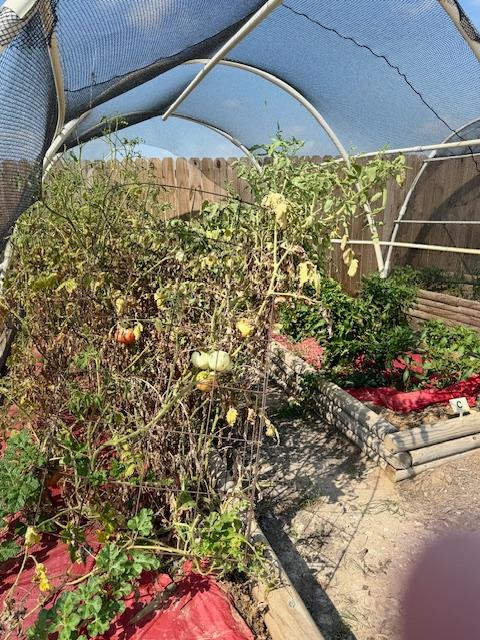 All of our tomato plants from spring have now been pulled up. It is too hot for them to do anything else. We still have some pepper plants but that is about it until fall.
All of our tomato plants from spring have now been pulled up. It is too hot for them to do anything else. We still have some pepper plants but that is about it until fall.Today has been a pretty good day. I got up early and got all of the animals fed and watered. We went to church at one of the area churches. It was a good service. We came home, ate a quick lunch and then found out that Biden finally dropped out of the running, endorsing Kamala. There are internet articles and postings saying that Michelle and/or Hillary are the only ones who can beat Trump in November. The August convention will be a fun one for sure.
It is hot and miserable outside. I was going to go fill orders this afternoon, but I decided to take the afternoon off. Working six long days a week is way more than enough. See you all tomorrow!
Aster Family
Did you know that many common vegetables are actually members of the aster family? Lettuce, artichokes, endive, and salsify are just a few examples of edible asters that you can grow in your garden. Here's what you need to know to cultivate these nutritious and delicious crops.
Lettuce is one of the most popular aster vegetables and a staple of salads everywhere. There are many different types of lettuce to choose from, including loose-leaf, butterhead, romaine, and crisphead. Lettuce is a cool-season crop that grows best in spring and fall. Sow the seeds directly in the garden as soon as the soil can be worked and enjoy fresh greens in just a few weeks!
Artichokes are a gourmet aster vegetable that are actually the immature flower buds of a thistle-like plant. They have a unique flavor and meaty texture that is prized in many cuisines. Artichokes are perennials that thrive in mild, Mediterranean-like climates. Plant them in a sunny spot with well-draining soil and harvest the buds when they're tight and firm.
Endive and chicory are bitter aster greens that add a zesty flavor to salads and other dishes. They come in both curly and broad-leaved varieties and are rich in vitamins and minerals. Endive and chicory are cool-season crops that can be grown in spring or fall. Sow the seeds directly in the garden and harvest the leaves as needed, or blanch them by covering with a pot to produce milder, more tender greens.
Salsify, also known as oyster plant, is a root vegetable in the aster family with a mild, slightly sweet flavor reminiscent of oysters. It has long, slender roots that are usually peeled and cooked like carrots or parsnips. Salsify is a cool-season crop that takes several months to mature. Plant the seeds in early spring and harvest the roots in fall or winter.
Other edible asters to try in your garden include Jerusalem artichokes (a type of sunflower with edible tubers), cardoons, a relative of the artichoke with edible stems, and scorzonera, another root vegetable similar to salsify.
David's Garden Seeds actually carries seeds for cardoons, salsify, and scorzonera so you are in luck! Of course, we also have endive and chicory. We carry artichoke seeds, just not the Jerusalem variety.
Return from The Aster Family to Brassicas
Anything To Share On This Topic?
Would you like to share additional information about this topic with all of us?
Since 2009, over 2,000,000 home gardeners, all across the USA, have relied on David's Garden Seeds® to grow beautiful, productive gardens. Trust is at the heart of it. Our customers know David's Garden Seeds® stocks only the highest quality seeds available. Our mission is to become your lifetime supplier of quality seeds. It isn't just to serve you once; we want to earn your trust as the primary supplier of all of your garden seeds.
Watch Our 2022 TV Commercial!
Sing Along To Our Jingle
♪♫♪♪ ♫ ♪ ♫♪♫♫
♪♫♪♪♫♫
Peppers and peas
And lots of yummy greens
You can't go wrong
With Squash This Long
At David's Garden Seeds
♪ ♫ ♪ ♫
Our New 2024 TV Ad
Please like and subscribe on YouTube and come visit us at our Farm Store! The music on our TV ad was written, played, and sung by our son, Matthew Schulze. You can meet him when you come to the farm. He just might give you a tour. Ask him to grab a guitar and sing our jingle that he wrote.

We are David's Garden Seeds®. If you need great seeds, we've got over 1,200 varieties to choose from.
Your second block of text...
Subscribe To Mrs. David's Garden Seeds® Newsletter For FREE!
Find out what is going on down on the farm by reading our blog and by subscribing to our free newsletter for all of the information going down at David's Garden Seeds® and on the farm. I love to share helpful information with you. Please let your friends know and y'all come on down for a visit when you get the chance. We would love to meet you!
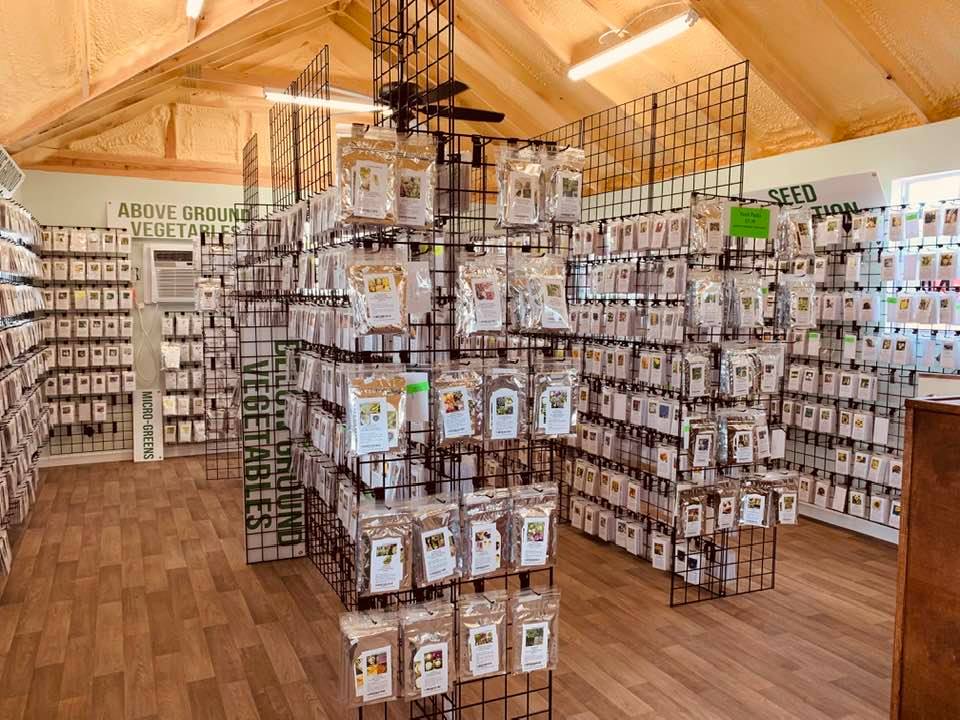
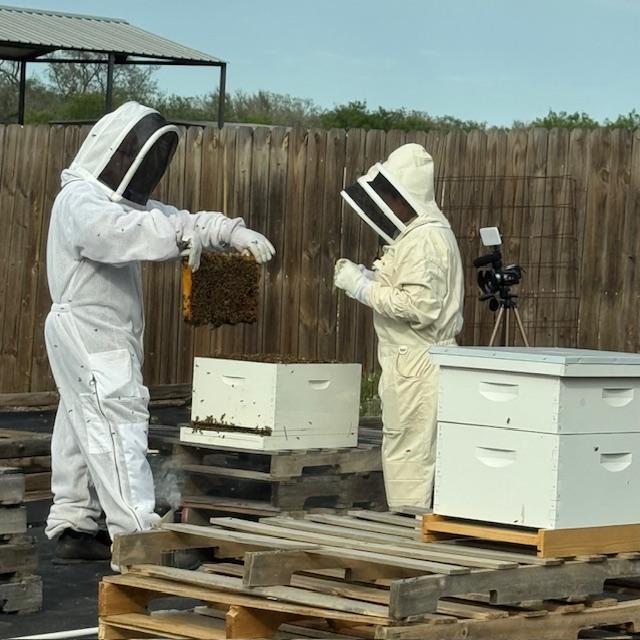 Our bee hives
Our bee hives Our fish pond
Our fish pond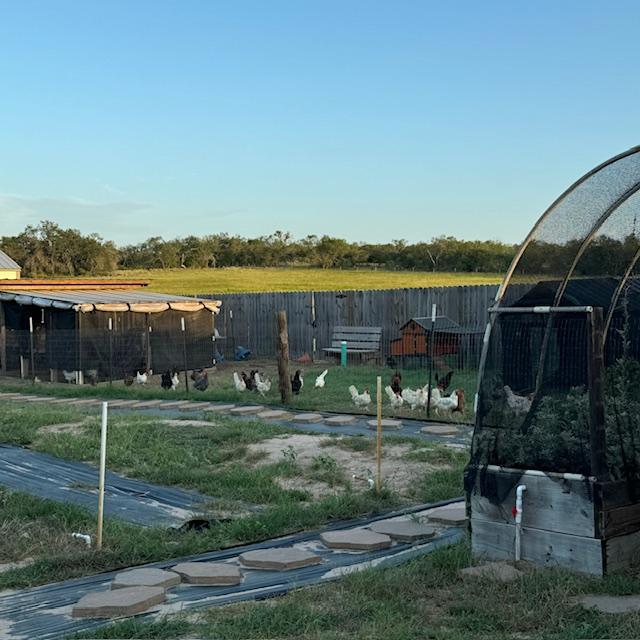 Our chickens
Our chickens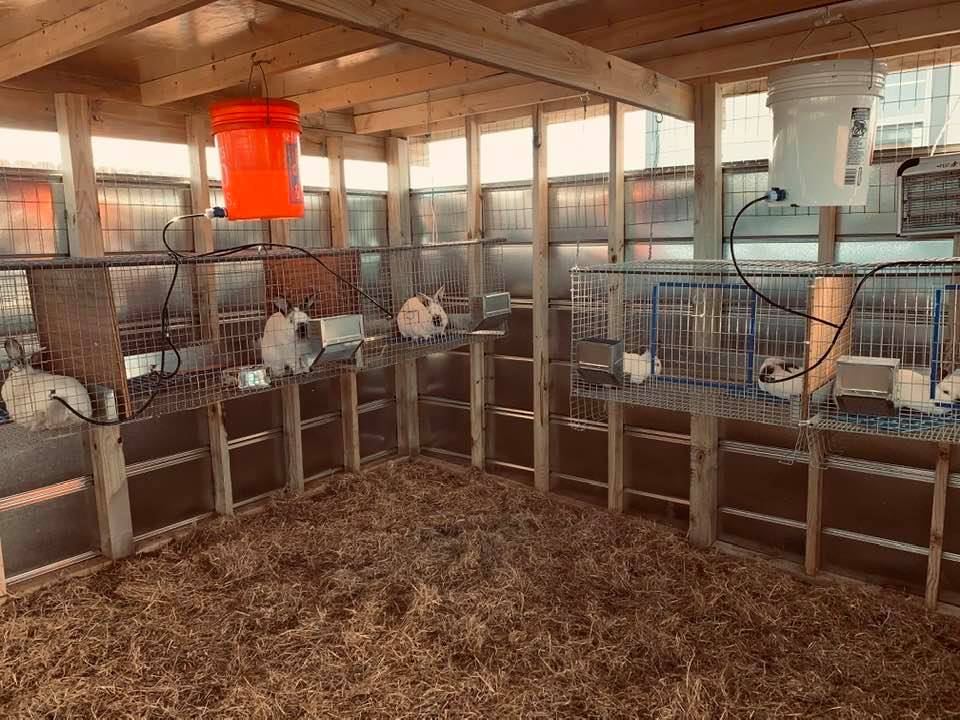 Our bunny rabbits
Our bunny rabbits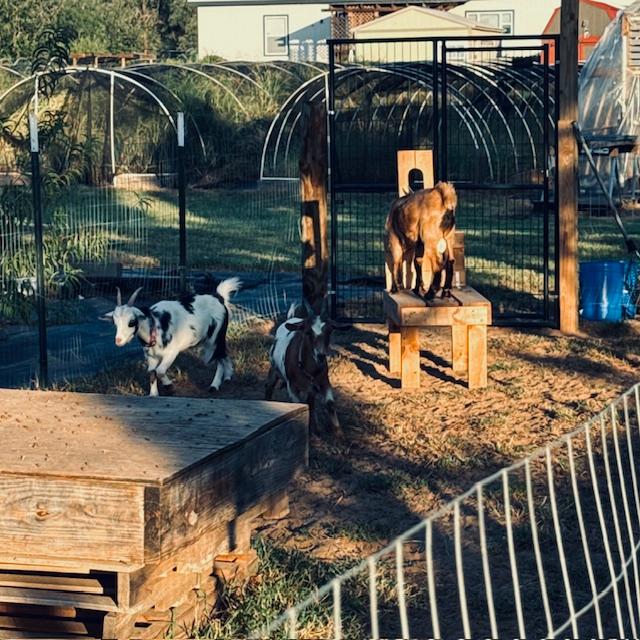 Our Nigerian Dwarf goats
Our Nigerian Dwarf goats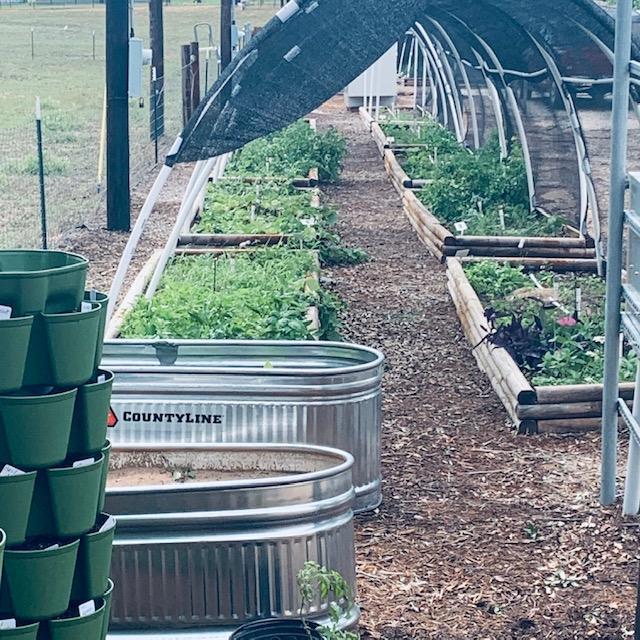 A few of our raised garden beds
A few of our raised garden beds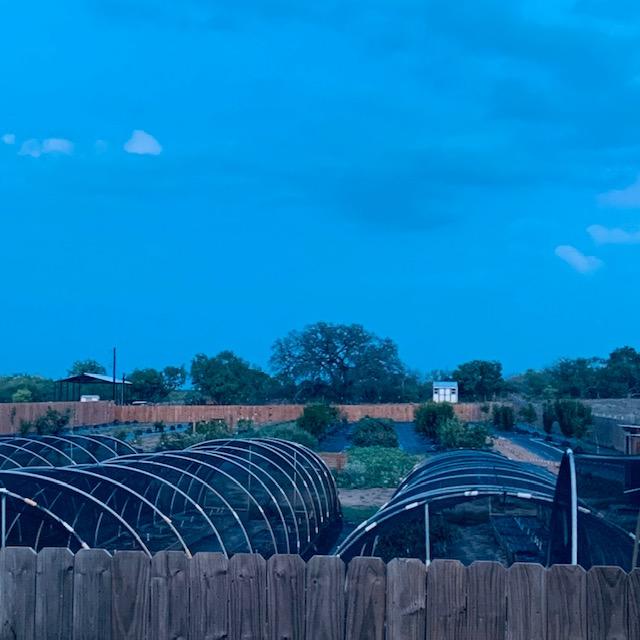 Our orchard and hoop houses
Our orchard and hoop houses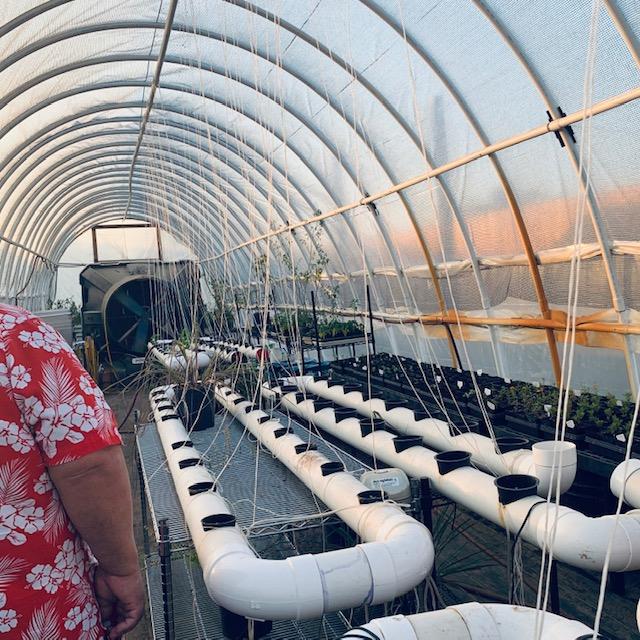 Inside our high tunnel
Inside our high tunnel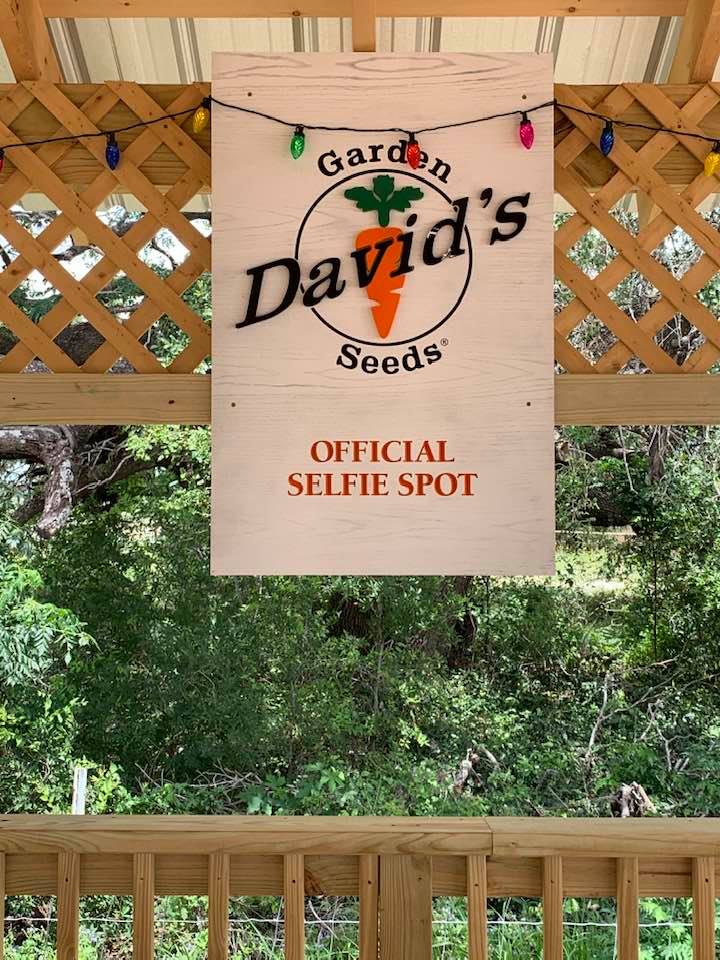 Take a selfie at our official selfie spot!
Take a selfie at our official selfie spot! Flowers, bees, and butterflies are everywhere!
Flowers, bees, and butterflies are everywhere!